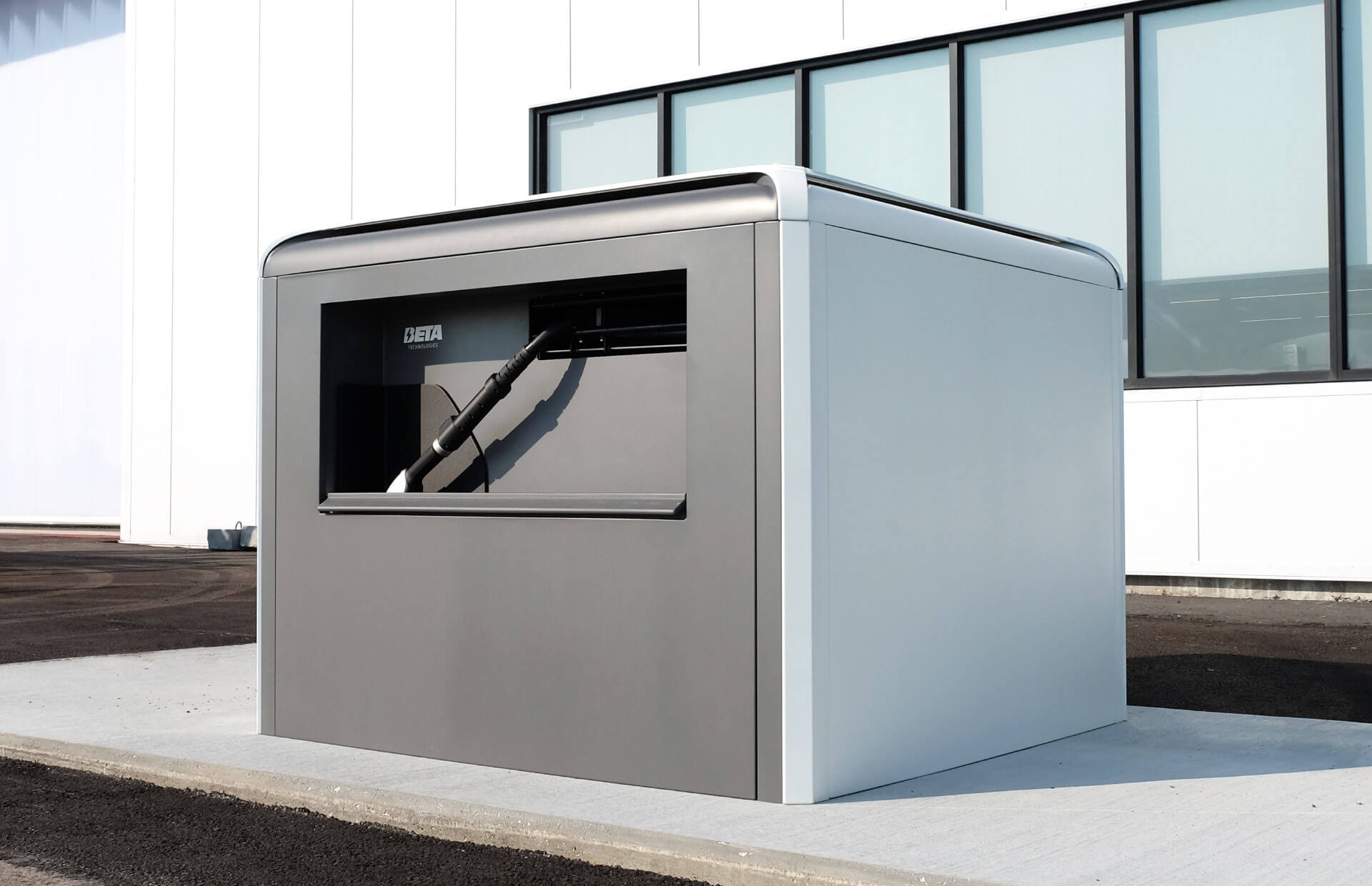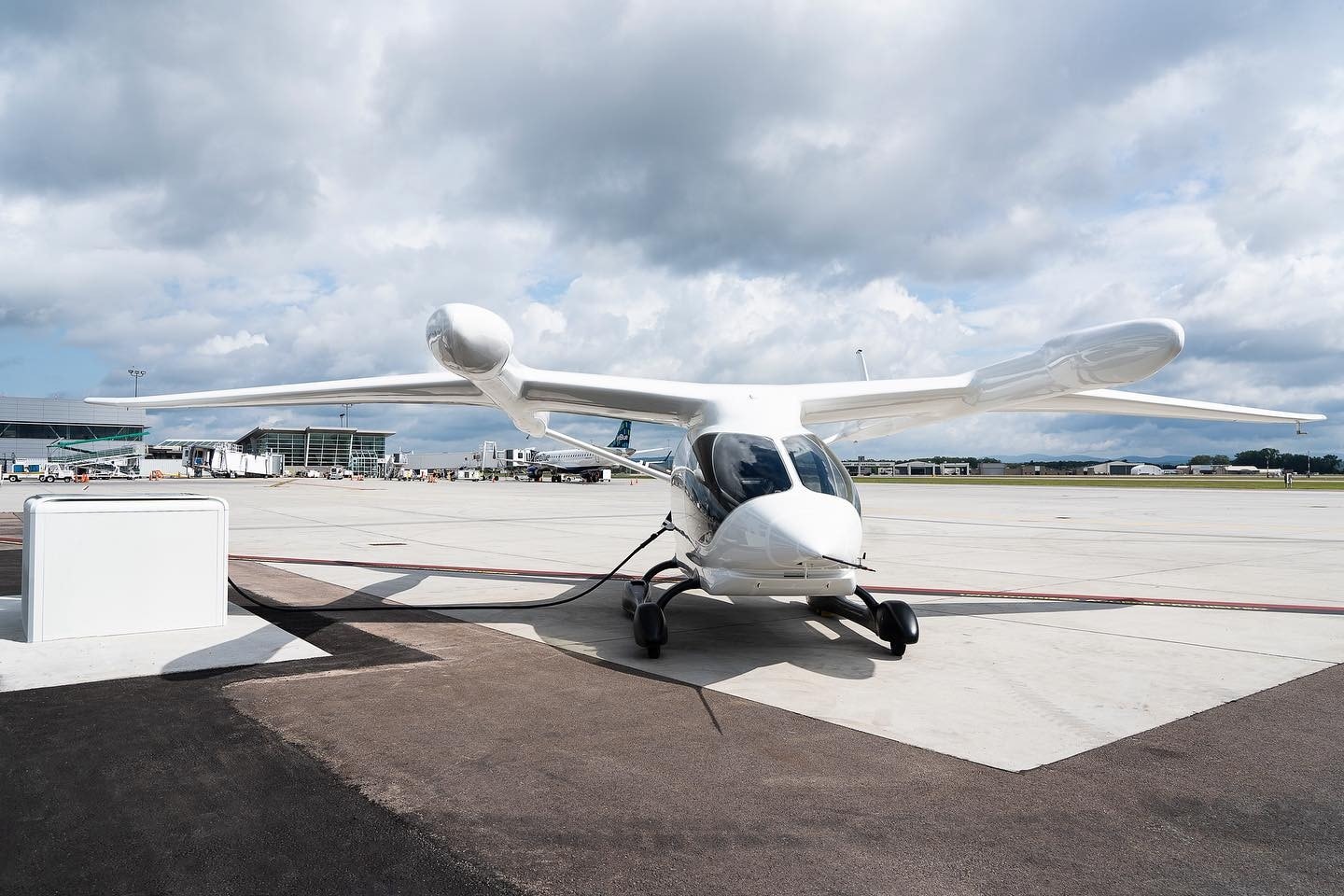The most recent addition to the electric charging scene is Beta Technologies, which is now officially the only charger designed specifically for electric aircraft and is UL-certified. Known for its Alia eVTOL (electric vertical takeoff and landing) aircraft, which has garnered attention from various customers and the U.S. military, Beta Technologies aims to establish a robust charging infrastructure to facilitate air taxi operations across America.
The Charge Cube, developed by Beta, stands out as the sole charger of its kind to receive UL certification, signifying compliance with safety standards and regulations. Currently, CCS serves as the internationally recognized charging standard for electric aviation, ensuring compatibility with electric cars, trucks, and aircraft.

The Charge Cube boasts multi-modal and interoperable capabilities, a hallmark of Beta’s charging solutions, allowing it to charge not only eVTOLs but also ground EVs. With a 50-foot (15.2 meters) cord, the Charge Cube offers the longest reach among certified chargers, enhancing its flexibility to support a wide range of aircraft and EVs.
Official certification simplifies the process for future operators to obtain permits for electrical utility hook-ups. As Beta expands its aircraft charging network, it is also gearing up to enhance its Plattsburgh facility.
The Alia eVTOL, a five-seat electric air taxi, has garnered attention for its distinctive design, inspired by the Arctic tern. Promising superior range capabilities compared to other battery-electric VTOLs (up to 250 miles/463 km) and a payload of 1,400 lbs (635 kg), it is currently undergoing certification and is slated to enter commercial service next year.

